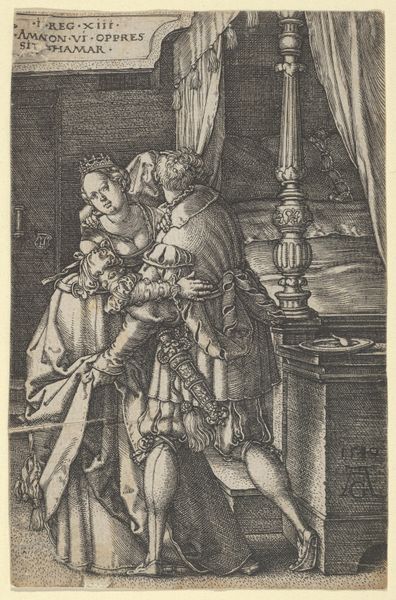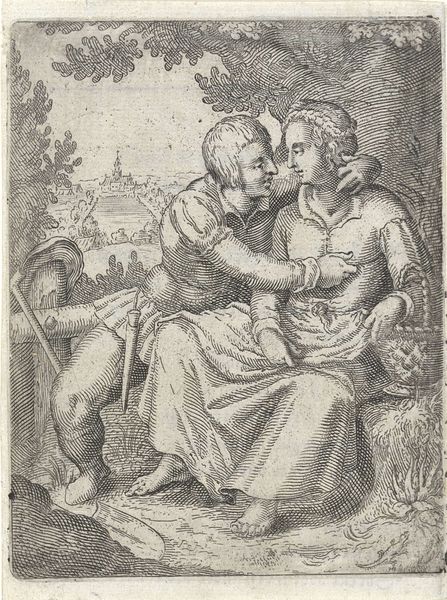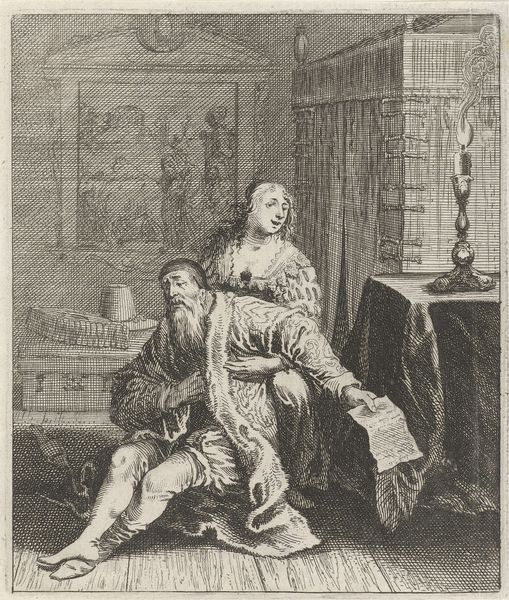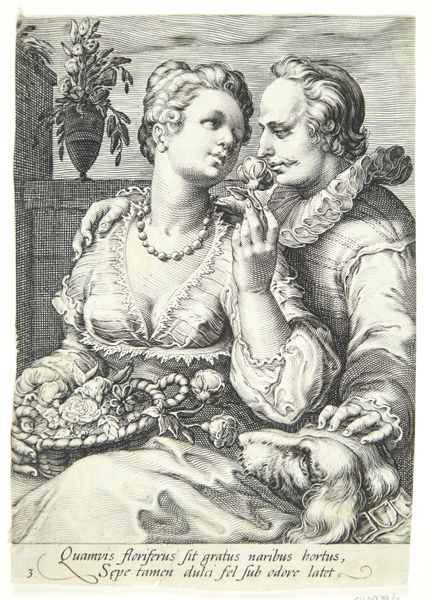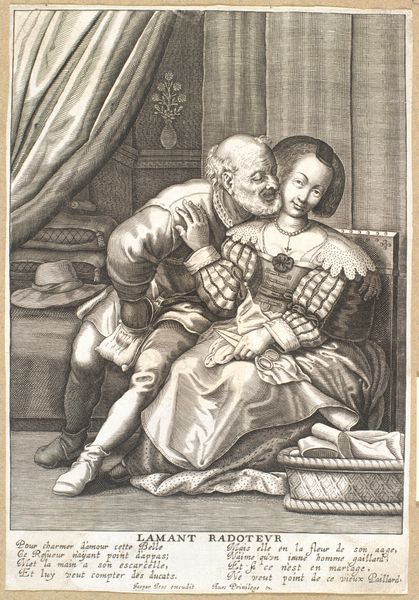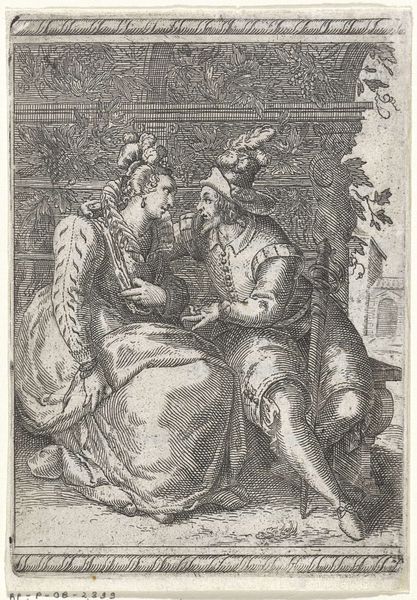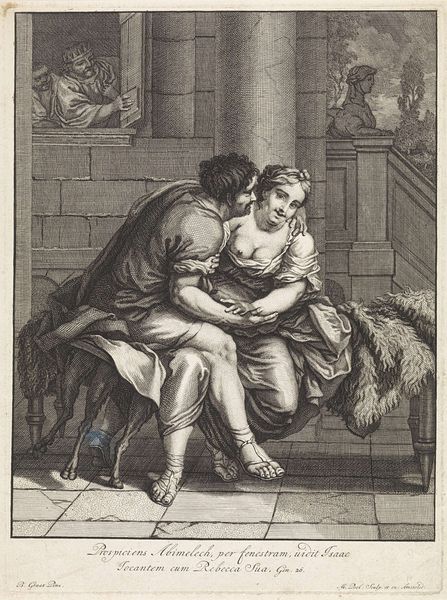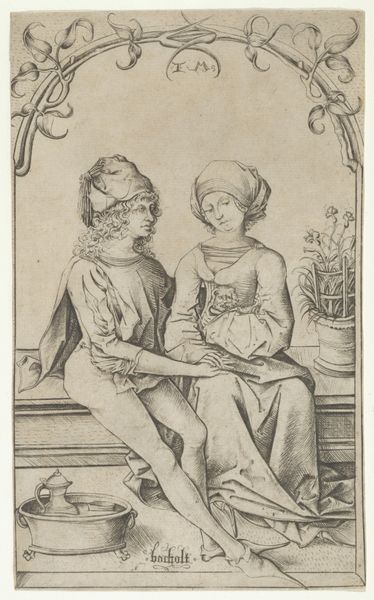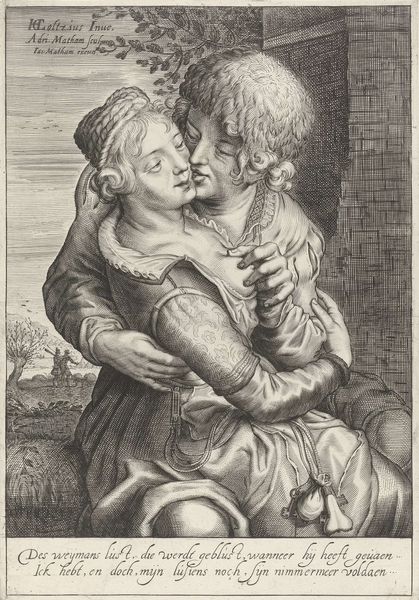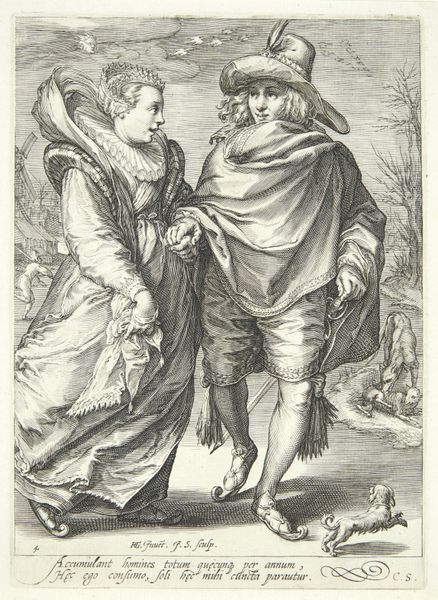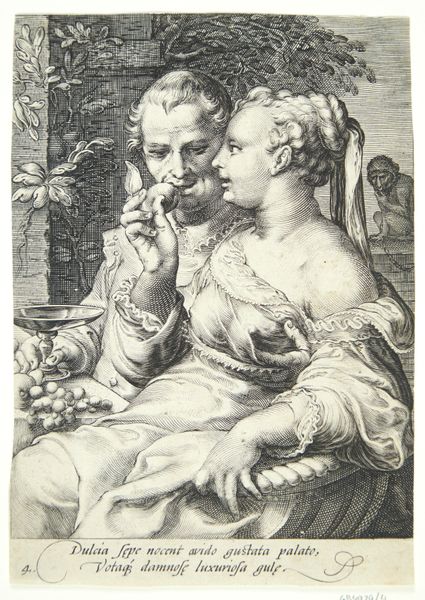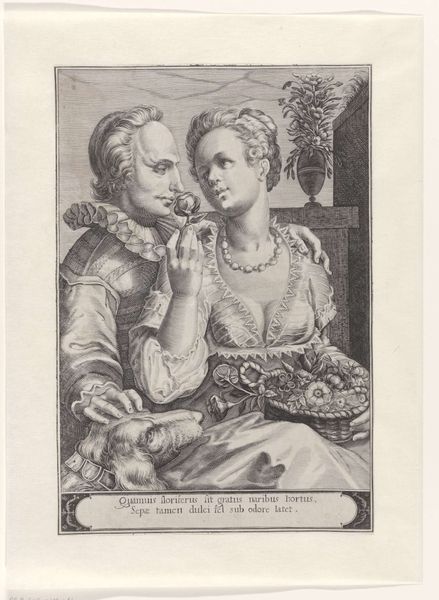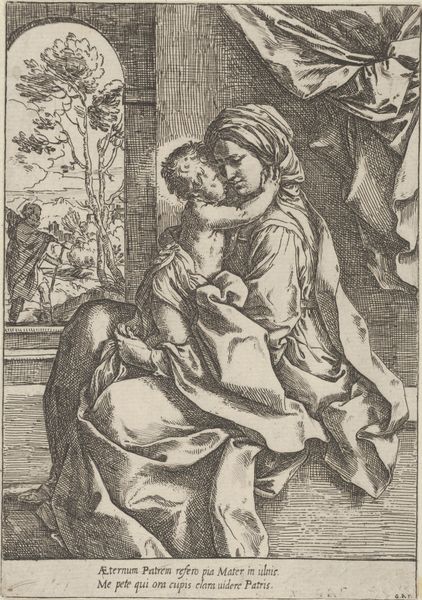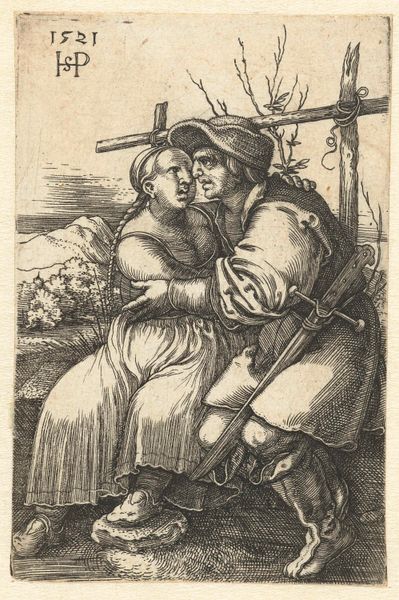
print, etching, engraving
#
portrait
# print
#
etching
#
mannerism
#
portrait drawing
#
genre-painting
#
engraving
#
erotic-art
Dimensions: width 142 mm, height 185 mm
Copyright: Rijks Museum: Open Domain
Editor: This is "Ongelijke liefde" or "Unequal Love," an etching and engraving by Jacob Goltzius, dating somewhere between 1548 and 1630. The contrast between the figures is striking, but I'm unsure of how to interpret the piece further. What details jump out to you? Curator: Immediately, I consider the conditions under which this print was made. Etching and engraving were processes that relied on skilled labor and specific materials: copper plates, acids, and the engraver's burin. What does it mean to circulate an image of "unequal love" at a time when access to images themselves was limited to specific social classes who would purchase such items? Editor: So, you’re suggesting we should focus less on the narrative and more on the materiality and social context of the print? I was thinking about the symbolism. Curator: Exactly. Look closely at the basket in the foreground filled with sewing implements and textiles. Consider the role of women, their expected labor, and how the production and consumption of such prints both reinforced and potentially challenged those social norms. Is it possible that what looks like unequal love is just unequal distribution of wealth? Editor: Interesting! I hadn't thought of the print in that way. By considering its material existence, the "unequal love" appears as the imbalance in social structures. Curator: Right. It becomes less about a moralizing tale and more about the economics of affection and obligation of gendered labour. How does this understanding of Goltzius’ methods broaden our definition of ‘art’ at the time? Editor: It positions prints, and other forms of skilled craft, as vital communicators and shapers of culture. Thank you. I see this piece so differently now. Curator: My pleasure. Approaching art with a materialist perspective enriches our interpretations of art’s historical and cultural relevance.
Comments
No comments
Be the first to comment and join the conversation on the ultimate creative platform.
